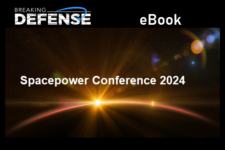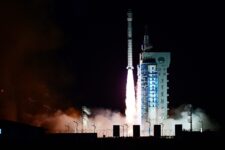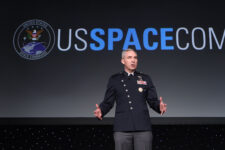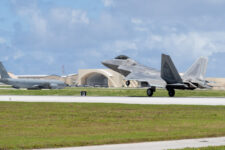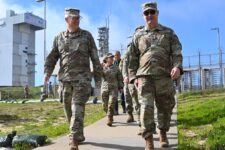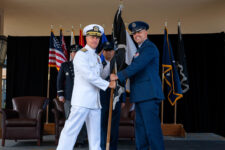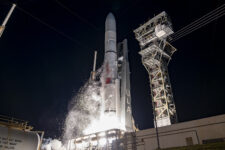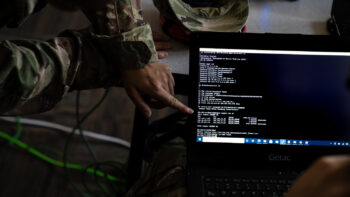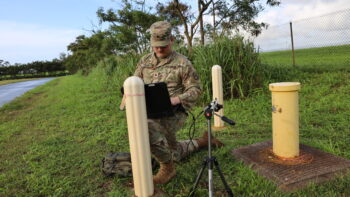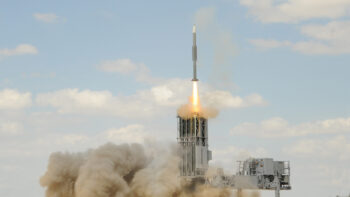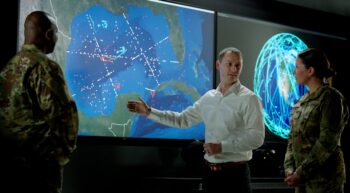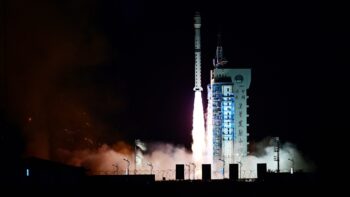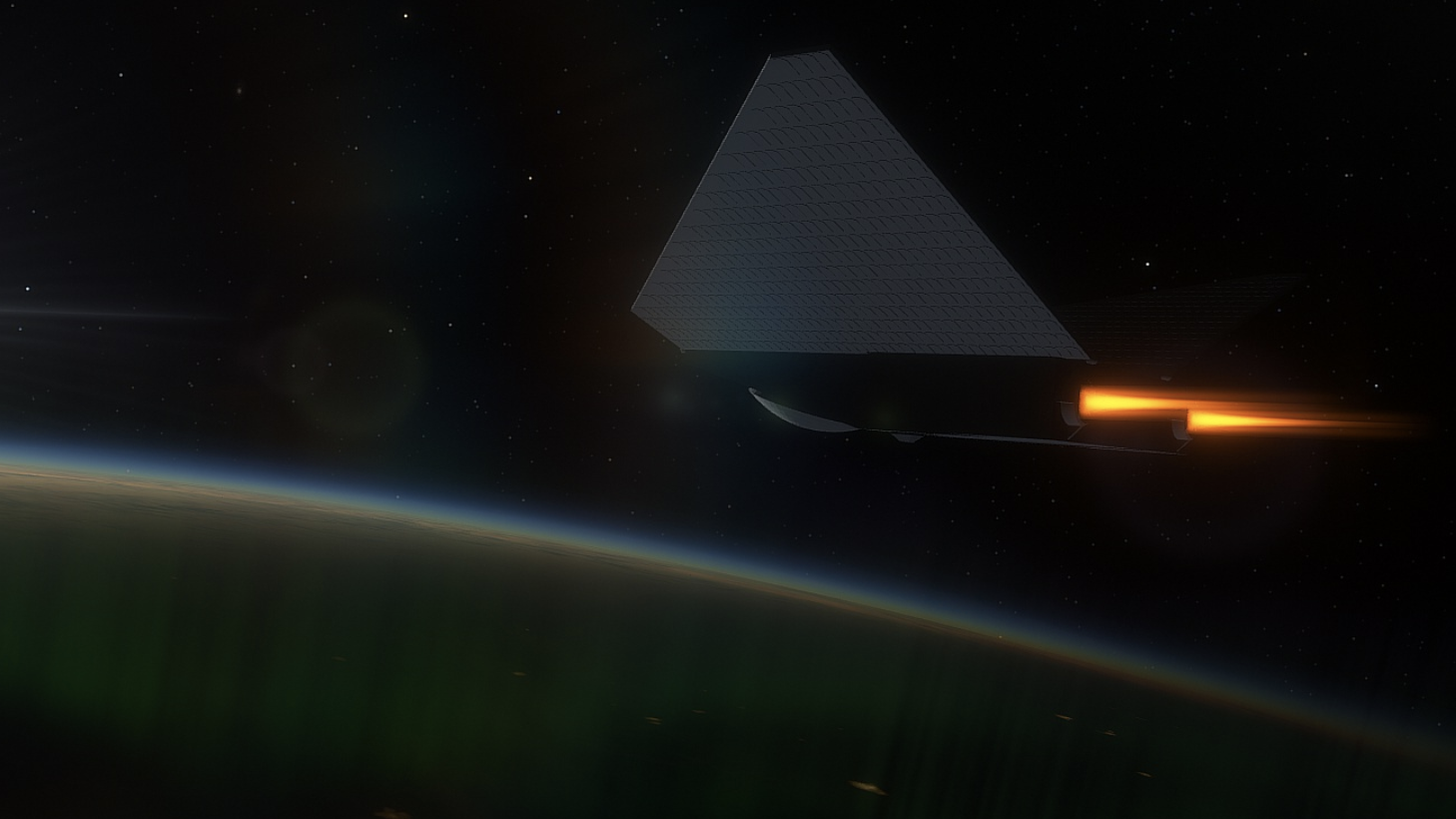
California-based Phase Four, one of the six winners of this year’s Hyperspace Challenge, is developing a plasma thruster for use in very low orbits. (Image: Phase Four)
WASHINGTON — Six nontraditional defense companies from four countries have been chosen by the New Mexico-based Hyperspace Challenge accelerator to help inject cutting-edge tech into US military space operations.
For this year’s program, cosponsored by Air Force Research Laboratory (AFRL) and the Space Rapid Capabilities Office (SpRCO), the focus is on new capabilities for “dynamic space operations” — missions that rely on (relatively) high speed, precise and efficient maneuvers on orbit such as satellite refueling, SpRCO Director Kelly Hammett told Breaking Defense in a recent interview.
SpRCO is an independent acquisition unit under the Space Force with the mission of rapidly bringing innovative technology to the field for use by US Space Command (SPACECOM) operators. This year is the first time the office has sponsored the annual Hyperspace Challenge contest.
“Right now, the position of my combatant commander is: ‘I wanna move, I wanna refuel, I wanna have life-extension and I wanna live’,” Hammett said.
He added that he has been talking to Brig. Gen. Kristin Panzenhagen, who heads up the Assured Access to Space Program Executive Office for Space Force’s Space Systems Command, about “how to actually build a strategy, get funding and make this happen for the Space Force.”
While SPACECOM is chomping at the bit to enable dynamic space operations, even sponsoring what is expected to be an annual conference on “space mobility,” the Space Force up to now doesn’t have a formal budget for these sorts of missions. Instead, service officials largely have been working on cooperative efforts with industry, AFRL and DARPA on experiments.
According to a press release from the Central New Mexico Community College that manages the Hyperspace Challenge accelerator, the six companies will “engage directly” with SpRCO, “which is seeking products that will approach the protection of space assets from a variety of angles.” These include:
- Improving space visibility and awareness using threat and hazard awareness capabilities that can quickly and accurately detect and prioritize threats either from the ground or space.
- Advancing space analysis and vehicle autonomy using artificial intelligence, machine learning, and/or autonomous technologies that reduce ground-based vehicle operator workload, inform intelligent vehicle response decisions, and decrease vehicle response time.
- Increasing space vehicle lifespan and maneuverability using advanced propulsion, refueling capabilities, and/or other fuel conservation innovations that allow space assets to maneuver freely without future negative consequences.
The six winners are: Phase Four of Hawthorne, Calif.; Dawn AeroSpace of Delft, The Netherlands; Lexset.ai of Brooklyn, N.Y.; Magdrive, Harwell Innovation Campus of Harwell Oxford, England; TRL11 of Irvine, Calif.; and High Earth Orbit Robotics of Haymarket, Australia.
The firms will be invited to a series of virtual meetings this month, and will participate in a two day on-site at Albuquerque New Mexico’s Q-Station technology hub (also cosponsored by AFRL) on Nov. 1-2.
The press release stresses, however, that the Hyperspace Challenge “is not a short-term exercise in innovation,” instead explaining that the participants will be able to lay the groundwork for future partnerships with the Space Force and SPACECOM.
Space Force celebrates 5th anniversary at growing Spacepower Conference
Our latest eBook offers updates on the Space Force and SPACECOM, showcasing the latest tech, and the challenges of modern space operations.
